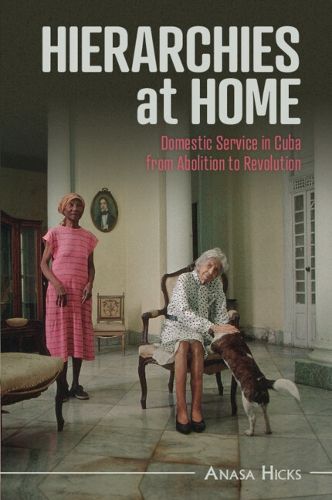Readings Newsletter
Become a Readings Member to make your shopping experience even easier.
Sign in or sign up for free!
You’re not far away from qualifying for FREE standard shipping within Australia
You’ve qualified for FREE standard shipping within Australia
The cart is loading…






Hierarchies at Home traces the experiences of Cuban domestic workers from the abolition of slavery through the 1959 revolution. Domestic service - childcare, cleaning, chauffeuring for private homes - was both ubiquitous and ignored as formal labor in Cuba, a phenomenon made possible because of who supposedly performed it. In Cuban imagery, domestic workers were almost always black women and their supposed prevalence in domestic service perpetuated the myth of racial harmony. African-descended domestic workers were 'like one of the family', just as enslaved Cubans had supposedly been part of the families who owned them before slavery's abolition. This fascinating work challenges this myth, revealing how domestic workers consistently rejected their invisibility throughout the twentieth century. By following a group marginalized by racialized and gendered assumptions, Anasa Hicks destabilizes traditional analyses on Cuban history, instead offering a continuous narrative that connects pre- and post-revolutionary Cuba.
$9.00 standard shipping within Australia
FREE standard shipping within Australia for orders over $100.00
Express & International shipping calculated at checkout
Hierarchies at Home traces the experiences of Cuban domestic workers from the abolition of slavery through the 1959 revolution. Domestic service - childcare, cleaning, chauffeuring for private homes - was both ubiquitous and ignored as formal labor in Cuba, a phenomenon made possible because of who supposedly performed it. In Cuban imagery, domestic workers were almost always black women and their supposed prevalence in domestic service perpetuated the myth of racial harmony. African-descended domestic workers were 'like one of the family', just as enslaved Cubans had supposedly been part of the families who owned them before slavery's abolition. This fascinating work challenges this myth, revealing how domestic workers consistently rejected their invisibility throughout the twentieth century. By following a group marginalized by racialized and gendered assumptions, Anasa Hicks destabilizes traditional analyses on Cuban history, instead offering a continuous narrative that connects pre- and post-revolutionary Cuba.